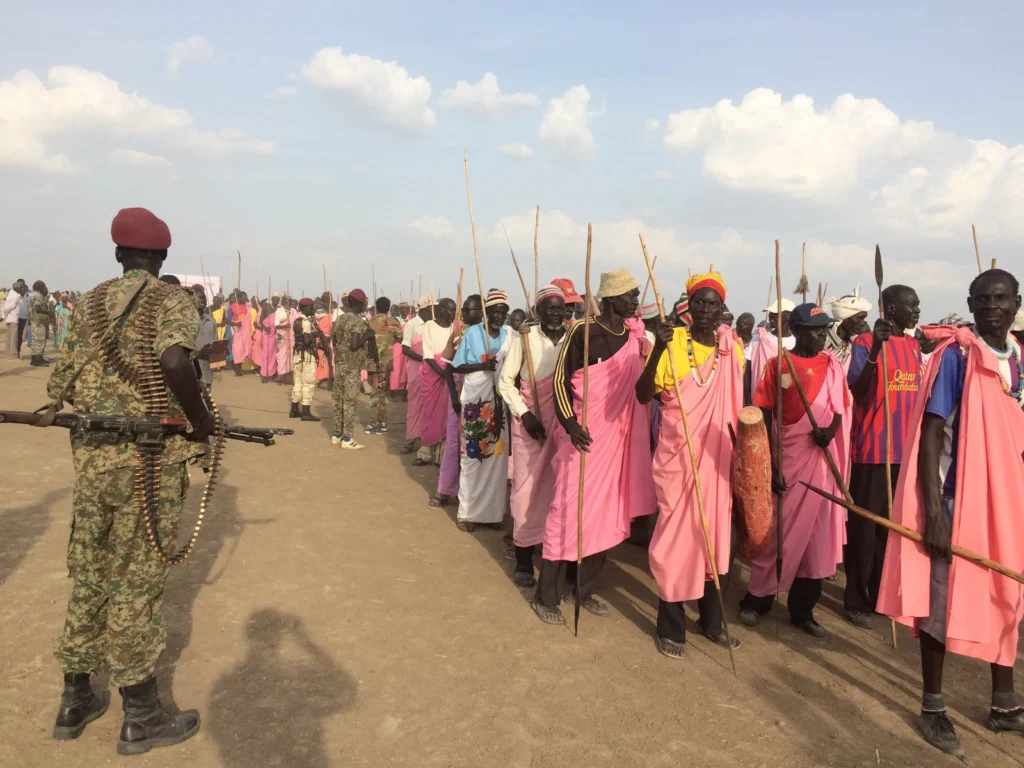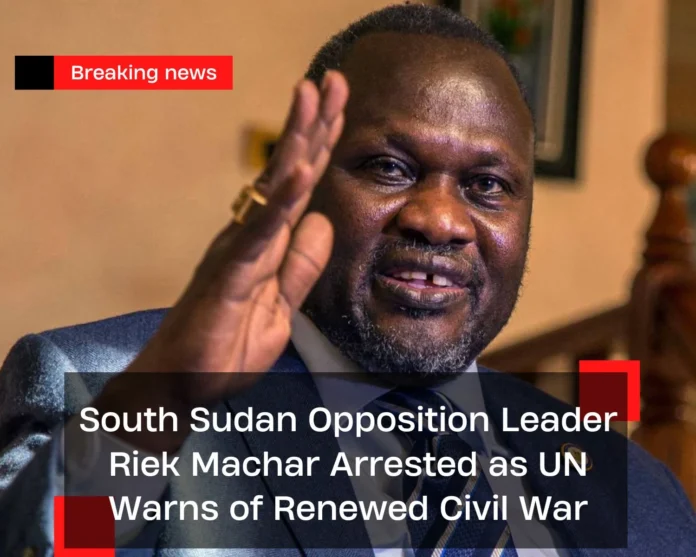South Sudan Opposition Leader Riek Machar Arrested
South Sudan’s fragile peace process is under immense strain following the reported arrest of opposition leader Riek Machar. His detention has triggered fears of renewed conflict in the world’s youngest nation, with the United Nations warning of escalating tensions that could plunge the country back into civil war. The arrest of Machar, a key figure in the country’s power-sharing government, has raised fresh doubts over the future of the 2018 Revitalized Peace Agreement, which brought an end to a five-year civil war that claimed the lives of 400,000 people.
Machar’s Arrest Sparks Political Unrest
According to official statements from the Sudan People’s Liberation Movement-in-Opposition (SPLM-IO), Machar was detained by government forces in what his party considers a grave violation of the 2018 Revitalized Peace Agreement. The opposition maintains that this move undermines the unity government and threatens the stability of the region. Machar’s arrest has sent shockwaves through South Sudan’s political landscape, with opposition supporters condemning the move as an attempt to consolidate power ahead of the country’s long-awaited elections.
Meanwhile, Nicholas Haysom, head of the UN mission in South Sudan, urged all parties to exercise restraint and uphold their commitments to peace. “The country stands at a crossroads—either it moves forward with peace and democracy or risks descending into widespread conflict,” Haysom emphasized in a recent statement. His warning reflects growing international fears that South Sudan could spiral into another devastating war, undoing years of peace-building efforts.
Rising Tensions in Upper Nile State
Recent clashes in Upper Nile State between government forces and the White Army—an armed militia allegedly loyal to Machar—have exacerbated tensions. The government launched a series of airstrikes against opposition strongholds, warning civilians in the area to evacuate or “face consequences.” This escalation has raised alarm among humanitarian groups, who warn that continued violence could exacerbate the already dire humanitarian crisis in the country.

Casualties have already mounted, with reports confirming dozens of deaths and thousands displaced since mid-March. Entire communities have been forced to flee their homes, with many seeking shelter in UN displacement camps. The United Nations Humanitarian Affairs Office (OCHA) has warned that the violence is making it increasingly difficult for aid organizations to deliver much-needed assistance to affected areas. South Sudan is already facing one of the worst food crises in the world, and renewed conflict could push millions to the brink of starvation.
International Response and Regional Implications
The crisis has drawn international scrutiny, prompting swift responses:
- Germany temporarily shut down its embassy in Juba, citing security concerns.
- The United States ordered non-essential diplomatic staff to evacuate the South Sudanese capital.
- Machar accused Uganda of violating a UN arms embargo by deploying military forces and conducting airstrikes in South Sudan. Uganda, however, asserts that it acted at the request of South Sudan’s government to combat White Army rebels.
- The African Union and IGAD (Intergovernmental Authority on Development) have called for an emergency summit to address the escalating crisis.
These events highlight the fragile nature of South Sudan’s post-civil war recovery and raise questions about the ability of the peace agreement to hold amid growing hostilities. Regional leaders are now under pressure to mediate a resolution before the situation deteriorates further.
What Lies Ahead?
With opposition leaders under arrest, military confrontations escalating, and diplomatic tensions rising, South Sudan stands on the brink of another devastating conflict. The international community has called for de-escalation, but whether peace will prevail remains uncertain.
Observers warn that if the current crisis is not resolved swiftly, the risk of full-scale civil war will increase. The South Sudanese government has maintained that it is committed to upholding the peace agreement, but the detention of key opposition figures and violent military responses suggest otherwise.
The coming days will be critical in determining whether South Sudanese leaders choose the path of reconciliation or risk plunging the nation into another prolonged war. The fate of the country hangs in the balance, and the world is watching.
Stay updated on the latest developments in South Sudan’s political crisis by following our coverage. Share your thoughts on the situation in the comments below.


